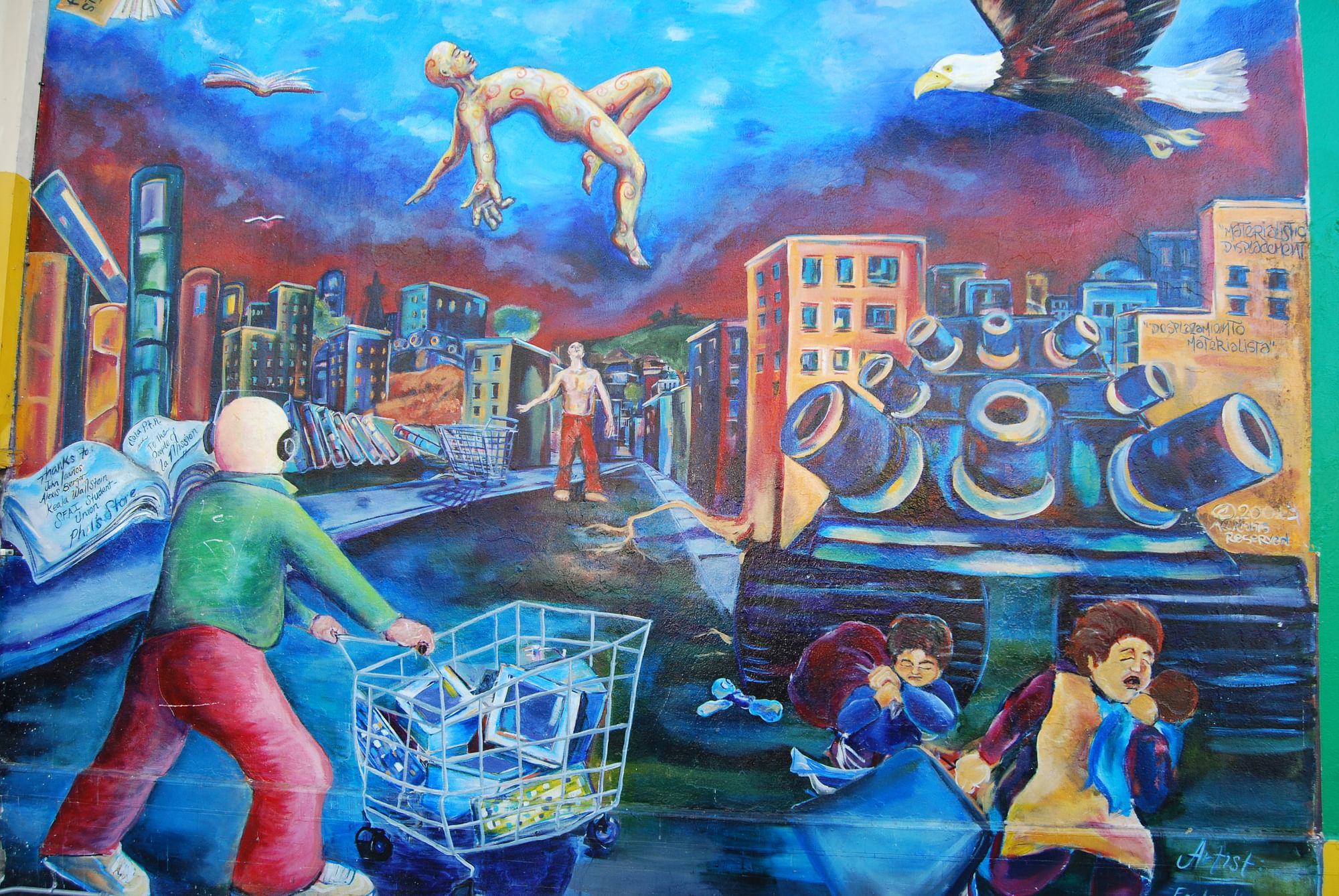It’s difficult to understand the pervading whims in human beings. If you have a bicycle, you want a bike and if you have a bike, you aspire for a zooming car, and if you have it already, you then certainly wish to replace it with an ultra-tech sedan. And then, is there any visible end? No, it is an interminable chain. Sky is the limit.
One of our neighbors is constructing a new house just adjacent to our locality. People say he is a go-getter businessman. The construction work has been going on for the last many years and the house is still ‘incomplete’ and ‘inadequate’ for the residents.
The problem lies in the insatiable appetite of the owner for what they say “Perfection”. He very so often replaces colorful tiles with costly marble as per the changing trends available in the market.
From sanitary to floor furnishing, he goes on replacing ‘old’ with ‘new’. Construct, demolish and reconstruct: this has been his guiding principle throughout these years, and so far it hasn’t culminated in any “perfect” structure.
They say that surplus money is never white and it gets wasted in black doings… Mali Haraam, Barahe Haraam (ill got, ill spent). But the question is as to why do people want so much money that they are inevitably compelled to resort to malpractices. Luxurious life? Dazzling get-up? Swanky style? Vainglorious razzmatazz and all this razzle-dazzle? And what next?
Some people argue that humans are not angels; they will be tempted to make the best of life. In other words, to be content is not possible and, that too, in an era when materialism is by and by proving indispensable for survival.
There is no denying the fact that life today has turned absolutely soulless and every one hankers after material pleasures and progress. We applaud people for their material and powerful cunningness rather than for a simple living.
We maintain relations with them thinking that they can be beneficial for us in any way at any time. The Selfish theory of Means has become our catchphrase.
That unless one doesn’t learn to limit and content oneself with some definite thing, one can’t certainly achieve any sort of progress (material or metaphysical), sounds Greek nowadays.
No doubt temptations are the pivot of lives, causing one to disregard the voice of reason and follow the deceptive music of emotions. But then, someone said: “Temptations are like tramps. Treat one well and he’ll return with his friends”.
Our temptations always increase with our possessions. The knowledge that something remains yet unattained impairs our enjoyment of the good before us. We start comparing our lives with that of others, and counting our troubles and not blessings.
In a way, these very agonizing troubles lead us to welcome destinations where we feel valued and respected. Where humility soaks our survival and modesty makes us mellow.
As Persian Poet Rumi says, “What hurts you blesses you…. the wound is the place where the Light enters you”. We are all students of inevitable grief and unavoidable pain who have to experience trials and adversity for gaining learning and perspective.
Jonathan Swift, author of Gulliver’s Travels, was the most devastating pessimist in English literature. He was so sorry that he had been born that he wore black and fasted on his birthdays. Yet, in his despair, this supreme pessimist of English literature praised the great health-giving powers of cheerfulness and happiness. “The best doctors in the world,” he declared, “are Doctor Diet, Doctor Quiet, and Doctor Merryman.”
Dale Carnegie in one of his hunky-dory piece of writing says-“You and I may have the services of Doctor Merryman free every hour of the day by keeping our attention fixed on all the incredible riches we possess—riches exceeding by far the fabled treasures of Ali Baba.”
He further adds-“Would you sell both of your eyes for a billion dollars? What would you take for your two legs? Your hands? Your hearing? Your family? Add up your assets, and you will find that you won’t sell what you have for all gold ever amassed by the Rockefellers, the Fords, and the Morgans combined.” What an incisive concept written so beautifully!
Certainly, we are rich in every sense and in every aspect but seldom do we think of what we have. Rather we always think about what we lack, and this is the cause of discontentment and tragedies in our lives. If only we could think of all we have to be grateful for, and thank the Almighty for all our boons and bounties!
Humans, of course, can’t be angels but let them not turn beasts, running amuck to fulfill their senseless whims and oblige their drossy impulses.
Let we humans remain human: conceding and thoughtful with yesterday, conciliatory and content with today, and calm and patient about tomorrow. As Omar Khayyam puts it-
Alike for those who for to-day prepare,
And those that after some to-morrow stare,
A Muezzin from the Tower of Darkness cries-
Fools! Your Reward is neither here nor there.
Disclaimer: The views and opinions expressed in this article are the personal opinions of the author.
The facts, analysis, assumptions and perspective appearing in the article do not reflect the views of GK







